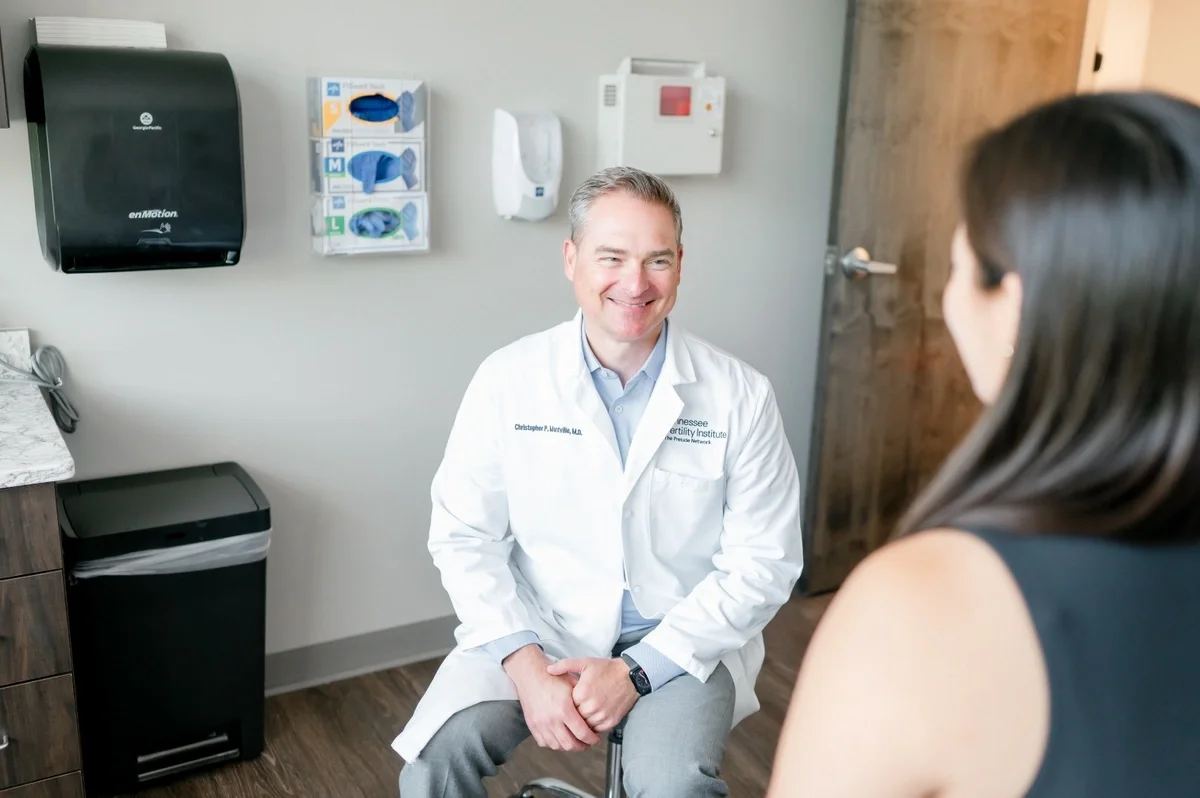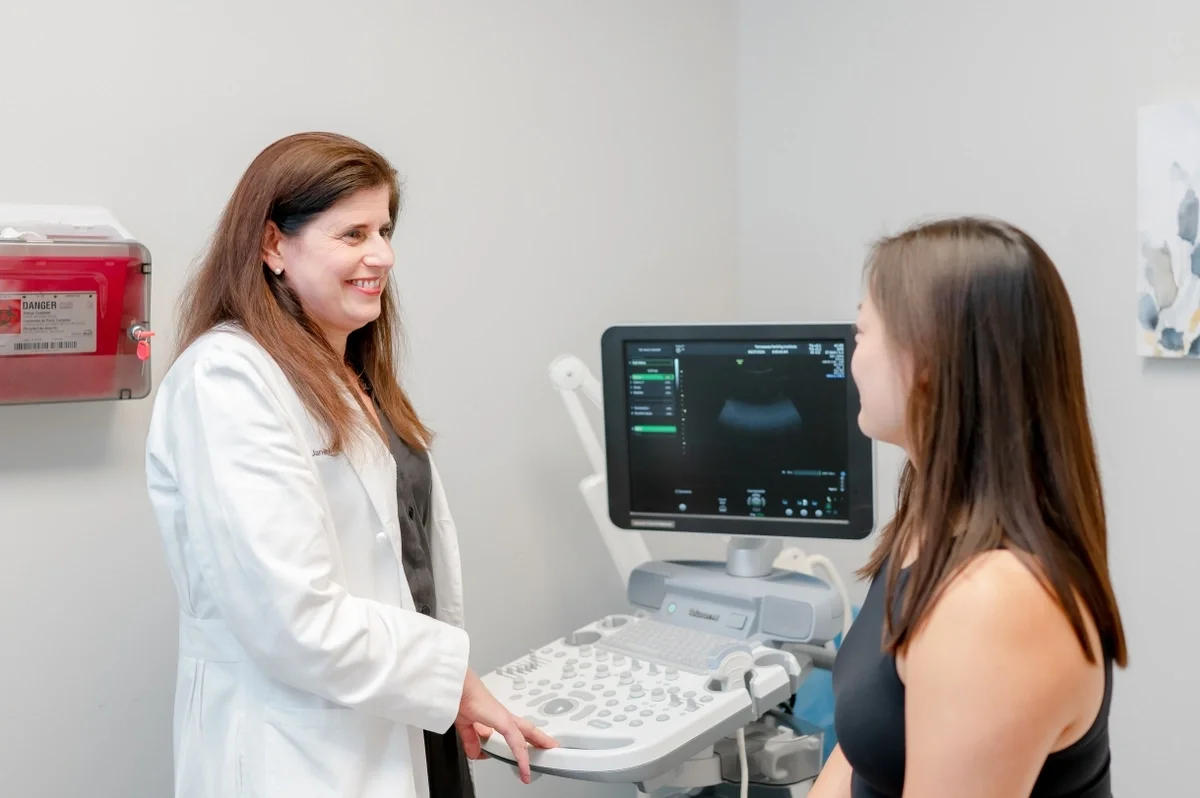
OB/GYN or REI? How to Know Which Specialist to See (and When)
Reproductive health can be complex, and choosing the right provider is an important first step toward getting the answers and care you need. Many patients start with their obstetrician-gynecologist (OB/GYN), while others may need the expertise of a reproductive endocrinologist & infertility specialist (REI). Both play essential—but different—roles in your care.
Here’s a detailed look at what each specialist does, when to see them, and how they often work together to support your fertility and overall reproductive wellness.
When Should I See An OB/GYN?
An OB/GYN (obstetrician-gynecologist) is your go-to provider for general reproductive health, pregnancy care, and a variety of gynecologic concerns. Most people see their OB/GYN regularly for preventive care, but they can also help troubleshoot new symptoms and provide early fertility evaluations.
You should consider scheduling with your OB/GYN for:
1. Routine Preventive Care
-
Annual wellness exams that include breast exams, pelvic exams, and Pap smears.
-
Screenings for sexually transmitted infections (STIs), HPV, and cervical cancer.
-
Guidance on maintaining reproductive health through nutrition, exercise, and lifestyle choices.
2. Birth Control and Family Planning
-
Counseling on contraceptive options such as birth control pills, IUDs, implants, or barrier methods.
-
Advice on when and how to stop birth control in preparation for pregnancy.
3. Menstrual Cycle Concerns
-
Evaluation for irregular periods, heavy bleeding, or unusually painful cycles.
-
Management of conditions like PMS (premenstrual syndrome) or premenstrual dysphoric disorder (PMDD), a severe form of PMS.
-
Referrals for further testing if hormonal imbalances or structural concerns are suspected.
4. Pelvic Pain or Infections
-
Diagnosis and treatment of urinary tract infections (UTIs), yeast infections, and bacterial vaginosis.
-
Initial evaluation for chronic pelvic pain, which could be related to endometriosis, uterine fibroids, or pelvic floor dysfunction.
5. Prenatal, Pregnancy, and Postpartum Care
-
Full care through pregnancy, labor, and delivery.
-
Postpartum follow-up, including support for recovery, breastfeeding, and contraception.
When Should I Ask for a Referral?
Many patients first speak with their OB/GYN about fertility concerns, and your doctor may suggest seeing an REI if you’ve been trying to conceive for 12 months without success (if under 35) or six months without success (if 35 or older).
However, you don’t have to wait until you’ve reached those milestones to take action. At certain clinics—like Tennessee Fertility Institute—you can self-schedule a consultation with an REI without a referral.
Other reasons you might choose to meet with a fertility specialist sooner include:
-
Egg freezing and fertility preservation: If you’re interested in preserving your fertility for the future, whether for personal or medical reasons.
-
Third-party reproduction and LGTBTQ+ family-building: REIs can guide you through usage of donor sperm, donor eggs, reciprocal IVF, and gestational surrogacy options.
-
Known fertility risk factors: Such as irregular cycles, previous pelvic surgery, endometriosis, or a history of chemotherapy/radiation.
Taking the step to see a specialist earlier can give you more information, more options, and sometimes a better chance of success—especially if your goals are time-sensitive.
When Should I See A Reproductive Endocrinologist (REI)?
A Reproductive Endocrinologist is a physician who is first trained as an OB/GYN, then completes additional years of fellowship training focused specifically on reproductive hormones, fertility, and advanced assisted reproductive technologies.
You should consider scheduling with an REI if:
1. You’ve Been Trying to Conceive Without Success
-
For patients under 35, that means at least 12 months of trying.
-
For patients 35 or older, that means six months of trying.
-
If you have irregular cycles, no periods, or other signs of ovulatory issues, you may benefit from seeing an REI sooner.
2. You’ve Experienced Multiple Miscarriages
-
An REI can perform in-depth evaluations to uncover causes, which may include genetic, hormonal, or structural issues.
-
They can develop treatment plans to increase the chances of a healthy pregnancy.
3. You Have a Known Fertility-Impacting Condition
-
Polycystic Ovary Syndrome (PCOS): REIs can provide targeted hormonal treatment and ovulation support.
-
Endometriosis: REIs can help address how the condition affects fertility and create a treatment plan that may include surgery or IVF.
-
Diminished Ovarian Reserve (DOR): They can recommend time-sensitive options like egg freezing or IVF.
-
Blocked Fallopian Tubes (Tubal Factor Infertility): REIs can diagnose and offer alternatives such as IVF.
4. You Need Advanced Fertility Treatment
-
In Vitro Fertilization (IVF), Intrauterine Insemination (IUI), and fertility medications.
-
Fertility preservation through egg or embryo freezing, often for medical reasons (like before cancer treatment) or personal planning.
-
Third-party reproduction including donor eggs, donor sperm, and gestational surrogacy.
5. You’re Facing Male Factor Infertility
-
REIs work closely with urologists to diagnose and treat male reproductive issues, including low sperm count, poor motility, or genetic concerns.
How Do OB/GYNs and REIs Work Together?
In many cases, your OB/GYN will be your first point of contact, performing basic fertility testing and ruling out common issues. If more specialized evaluation or advanced treatment is needed, they’ll refer you to an REI.
Once you’re pregnant through treatment with an REI, you’ll “graduate” from our clinic and return to your OB/GYN for prenatal and delivery care. This collaboration ensures you receive the right expertise at the right time.
The Bottom Line: Valuable Partners in Your Journey
Both OB/GYNs and REIs are valuable partners in your reproductive health. OB/GYNs provide comprehensive general and pregnancy-related care, while REIs offer specialized evaluation and treatment for fertility challenges.
If you’re unsure which specialist is right for your current needs—or if you’re ready to explore your fertility options—our team at Tennessee Fertility Institute is here to guide you.
Schedule a consultation today to take the next step toward your family-building goals.



